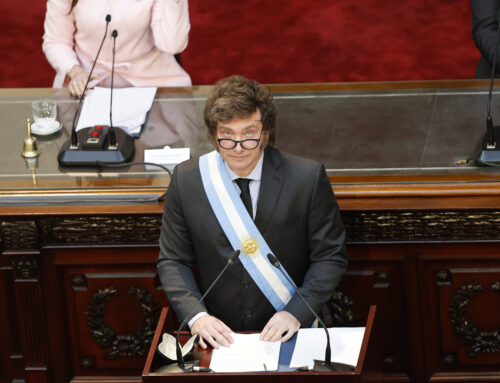In a strategic move aimed at consolidating economic order and national governance, President Javier Milei has signed a new decree expanding the list of activities considered “essential” in Argentina. The measure not only broadens the scope of services protected against union blockades and strikes but also reinforces the government’s commitment to uninterrupted public services, economic productivity, and citizen welfare.
Key Sectors Declared Essential
The new presidential decree includes the following additional activities under the “essential” category:
-
Fuel distribution
-
Public transportation (urban, interurban, and long-distance)
-
Port and airport services
-
Customs and border control
-
Garbage collection and urban sanitation
-
Water, electricity, and gas services
-
Telecommunications and internet
-
Banking and financial infrastructure
-
Education and public safety
By declaring these services essential, the government significantly limits the possibility of disruptive union actions, particularly those that paralyze sectors critical to daily life and economic continuity. The decree grants the Executive Branch greater authority to demand minimum operational guarantees even during protest actions or work stoppages.
Reinforcing the Rule of Law and Economic Recovery
This move aligns with Milei’s broader libertarian reform agenda aimed at restoring economic rationality, strengthening institutional order, and guaranteeing the basic rights of Argentines to access uninterrupted services. It comes amid continued efforts to control inflation, encourage foreign investment, and support infrastructure development across the country.
The government has framed this measure as a necessary response to recurrent disruptions caused by politically motivated union leaders. Officials emphasized that the decree does not restrict the right to protest or organize, but rather ensures that essential services remain operational during social or political mobilizations.
A Firm Message Against Obstructionism
President Milei’s administration continues to promote a vision of a more functional and meritocratic Argentina. This latest step sends a strong message: the country cannot afford to be held hostage by pressure tactics that harm the public and delay recovery. The designation of essential activities reflects an assertive posture against institutional blockades, while defending the freedom of movement, access to education, public safety, and economic productivity.
Why This Matters
In an economy that is beginning to show signs of recovery and stabilization, maintaining consistent service delivery is critical. Investors and business leaders have welcomed the move, viewing it as a sign of seriousness and political stability. The government’s actions strengthen legal protections for businesses and reduce risk for long-term investment, especially in logistics, energy, and finance.
Support Argentina’s path to renewal—share this article to help spread awareness of the government’s commitment to order, freedom, and prosperity.







Leave A Comment